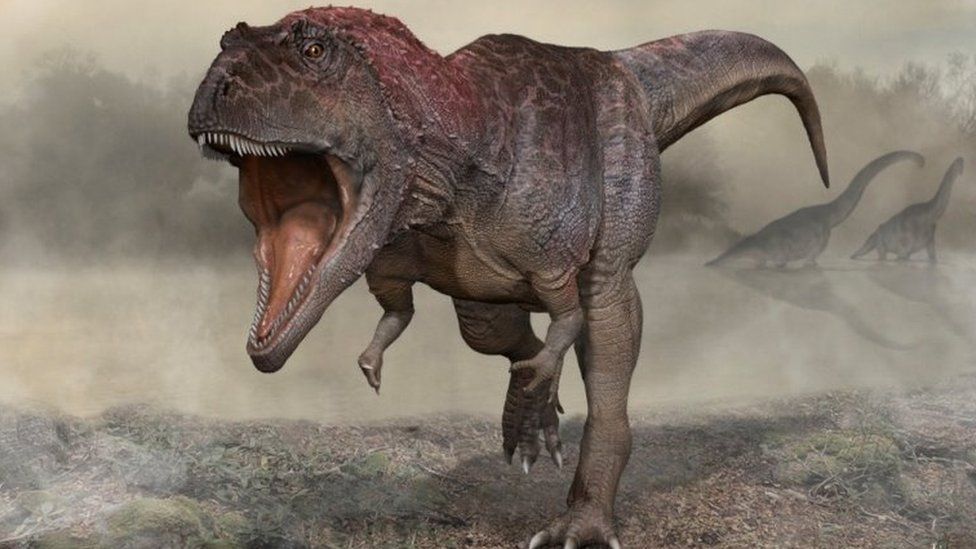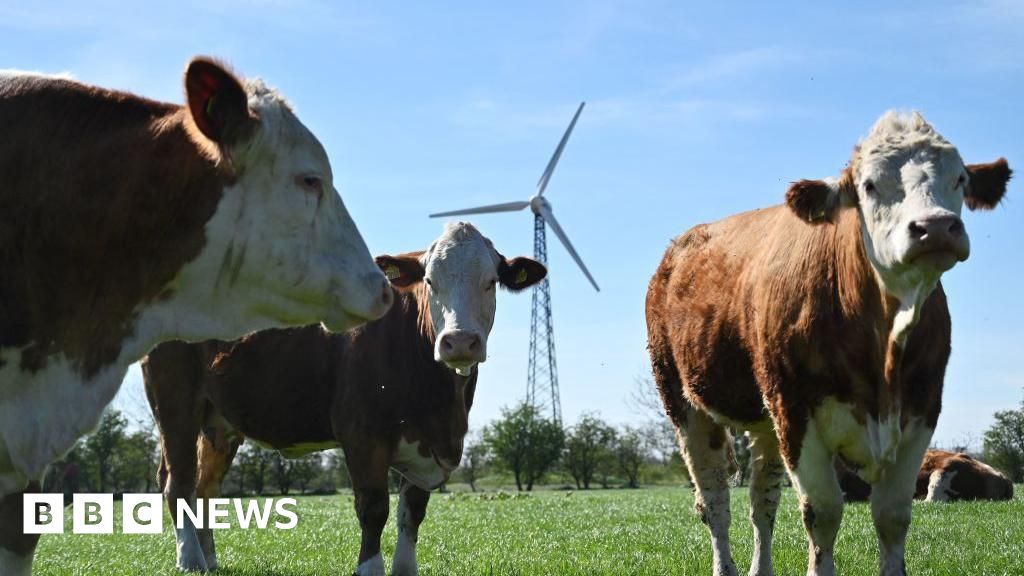ARTICLE AD BOX
 Image source, Carlos Papolio/Handout via Reuters
Image source, Carlos Papolio/Handout via Reuters
An artist's reconstruction of Meraxes gigas
A team of scientists in Argentina say they have discovered a new giant predatory dinosaur that had a huge head - but tiny arms for its size.
Writing in the Current Biology journal, the scientists say extensive skeletal remains of a previously unknown species were dug up in northern Patagonia.
Meraxes gigas was about 36ft (11m) long, with a 4ft skull - but its arms were only 2ft long.
The scientists believe small limbs gave the carnivorous survival advantages.
"I'm convinced that those proportionally tiny arms had some sort of function. The skeleton shows large muscle insertions and fully developed pectoral girdles, so the arm had strong muscles," said Juan Canale, lead author of the study.
"They may have used the arms for reproductive behaviour such as holding the female during mating or support themselves to stand back up after a break or a fall," he added.
His co-author Peter Makovicky said the dinosaur's arms were "literally half the length of the skull and the animal would not have been able to reach its mouth".
Mr Makovicky said he believed the species' massive heads were the main predatory tool, taking on the functions that arms would have had in smaller species.
Image source, Akiko Shinya/Handout via REUTERS
Image caption,Peter Makovicky says the dinosaur's arms were "literally half the length of the skull"
Meraxes gigas - named after a fictional dragon from the Game of Thrones book series - belonged to carcharodontosaurids, or shark-toothed lizards.
The four-tonne reptiles are believed to have roamed the Earth some 90-100 million years ago.
The scientists say two other species - tyrannosaurids and abelisaurids - also developed small arms for similar reasons.

 2 years ago
19
2 years ago
19








 English (US)
English (US)